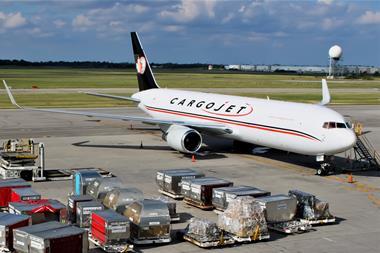The Biden administration last week announced plans to implement stricter rules on e-commerce goods being imported into the country under the de minimis exemption.
If implemented, the requirements would mean that any products that are part of the Section 301, Section 201, or Section 232 trade enforcement actions would no longer be covered by the de minimis exemption.
The exemption allows goods with a of value of $800 or less to avoid paying duties and come under less customs scrutiny when being shipped directly to an individual.
Section 301 tariffs currently cover approximately 40% of US imports, including 70% of textile and apparel imports from China. Other items subject to these tariffs include shoes and machinery.
“Some e-commerce platforms and other foreign sellers circumvent these tariffs by shipping items from China to the US claiming the de minimis exemption,” the Biden administration said in a statement. “If finalised, these goods would no longer be eligible for the de minimis exemption.”
Section 201 tariffs include products such as clothes-washing machines and solar panels, while Section 232 covers steel and aluminum industrial products.
Meanwhile, extra data would be required for de minimis shipments, including the 10-digit tariff classification number and the person claiming the de minimis exemption.
Finally, Consumer Product Safety Commission (CPSC) staff intend to propose a final rule requiring importers of consumer products to file Certificates of Compliance electronically with Customs and Border Protection (CBP) and CPSC at the time of entry, including for de minimis shipments.
A spokesperson for Temu said that it does not depend on the de minimis exemption.
“Since Temu’s launch in September 2022, our mission has been to offer consumers a wider selection of quality products at affordable prices,” the spokesperson said. “We achieve this through an efficient business model that cuts out unnecessary middlemen, allowing us to pass savings directly to our customers.
“Temu’s growth does not depend on the de minimis policy. We are reviewing the new rule proposals and remain committed to delivering value to consumers.”
At this stage it is not clear how long the new rules will take to be implemented, although the Biden administration called on Congress to pass legislation this year
Freight forwarder Flexport pointed out that this could mean the rules would be implemented during the peak season and e-commerce sales days, such as 11.11 and Black Friday.
The forwarder reckons the rule making could take between 60-120 days to implement and will need to go through a public comment period.
“In general, we anticipate additional duty costs and increased documentation requirements for all businesses currently using the de minimis exemption, should the executive order go into effect,” Flexport said.
“In the short term, businesses will be required to start providing HTS classifications down to the 10-digit level for all products if they hadn’t done so before. So, the most immediate step for businesses today is to start classifying 10-digit HTS codes.”
The new rules come as the US continues its crackdown on goods being imported into the country by the likes of Temu and Shein.
The Biden administration said that over the last 10 years the number of shipments entering the US claiming the de minimis exemption has increased significantly, from approximately 140m a year to more than 1bn a year.
The growth in e-commerce shipments follows an increase in the de minimis exemption from $200 to $800 in 2015.
“This exponential increase in de minimis shipments makes it more challenging to enforce US trade laws, health and safety requirements, intellectual property rights, consumer protection rules, and to block illicit synthetic drugs such as fentanyl and synthetic drug raw materials and machinery from entering the country,” the Biden administration said.
“The majority of shipments entering the US claiming the de minimis exemption originate from several China-founded e-commerce platforms, putting American consumers at risk, undercutting American workers and businesses, and resulting in the importation of huge volumes of low-value products such as textiles and apparel into the US market duty-free.
“The growing volume of de minimis shipments makes it increasingly difficult to target and block illegal or unsafe shipments. Foreign corporate giants who exploit the de minimis exemption do so for a variety of reasons.
“Some companies exploit the de minimis to conceal shipments of illegal and dangerous products and avoid compliance with US health and safety and consumer protection laws. Other foreign entities use it to circumvent U.S. trade enforcement actions intended to level the playing field for American workers, retailers, and manufacturers.”
The rise of Temu and Shein has resulted in a surge in air cargo volumes, with packages flown to the country and sent straight to the consumer, unlike the likes of Amazon where goods are imported in bulk - meaning they are subject to tariffs - and stored in warehouses in the destination market before being sold.
Surveys show that shoppers find that Amazon is more reliable and offers better, faster service than the Chinese e-commerce behemoths, but low prices trump their buying decisions.
Brandon Fried of the AirForwarders Association recently remarked that maintaining the current de minimis threshold is essential for sustaining growth in air cargo.
“It simplifies the import process for low-value goods, reduces administrative burdens, and lowers costs for businesses and consumers,” he said.
Instead, he would like to see greater funding for US customs so they can inspect more packages.
“To ensure that incoming shipments meet value and declaration requirements, CBP needs adequate funding for enforcement staffing. This will help balance the benefits of the de minimis threshold with the need for effective oversight and compliance,” he added.
https://www.aircargonews.net/monthly-exclusive/putzger-perspective-is-e-commerce-trade-under-threat/
















